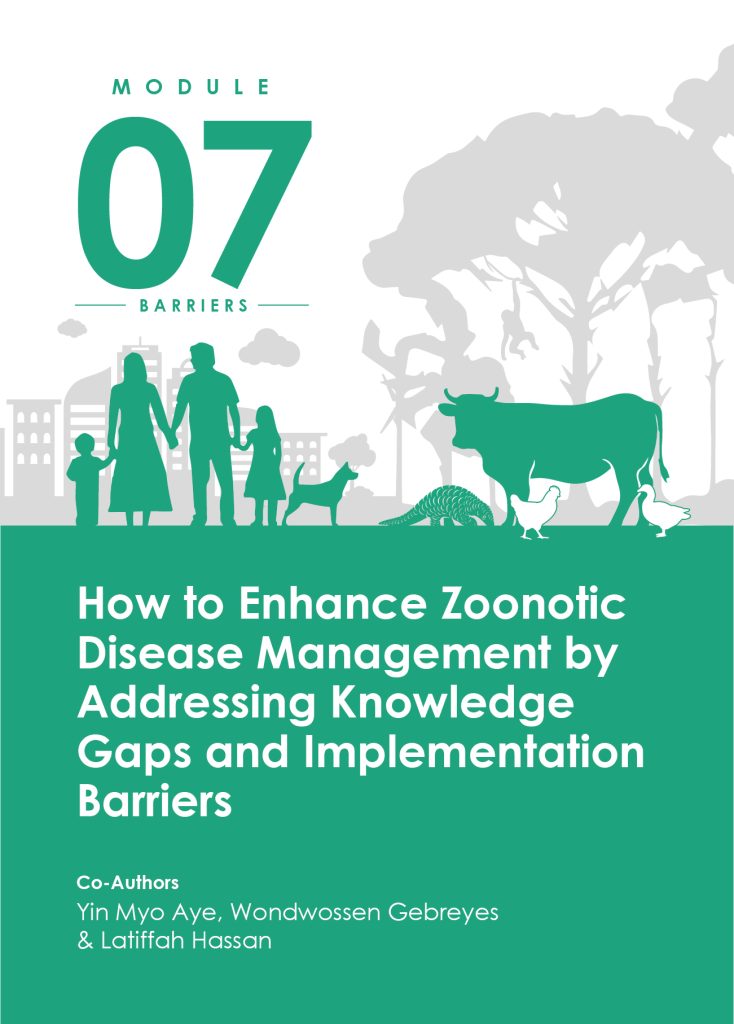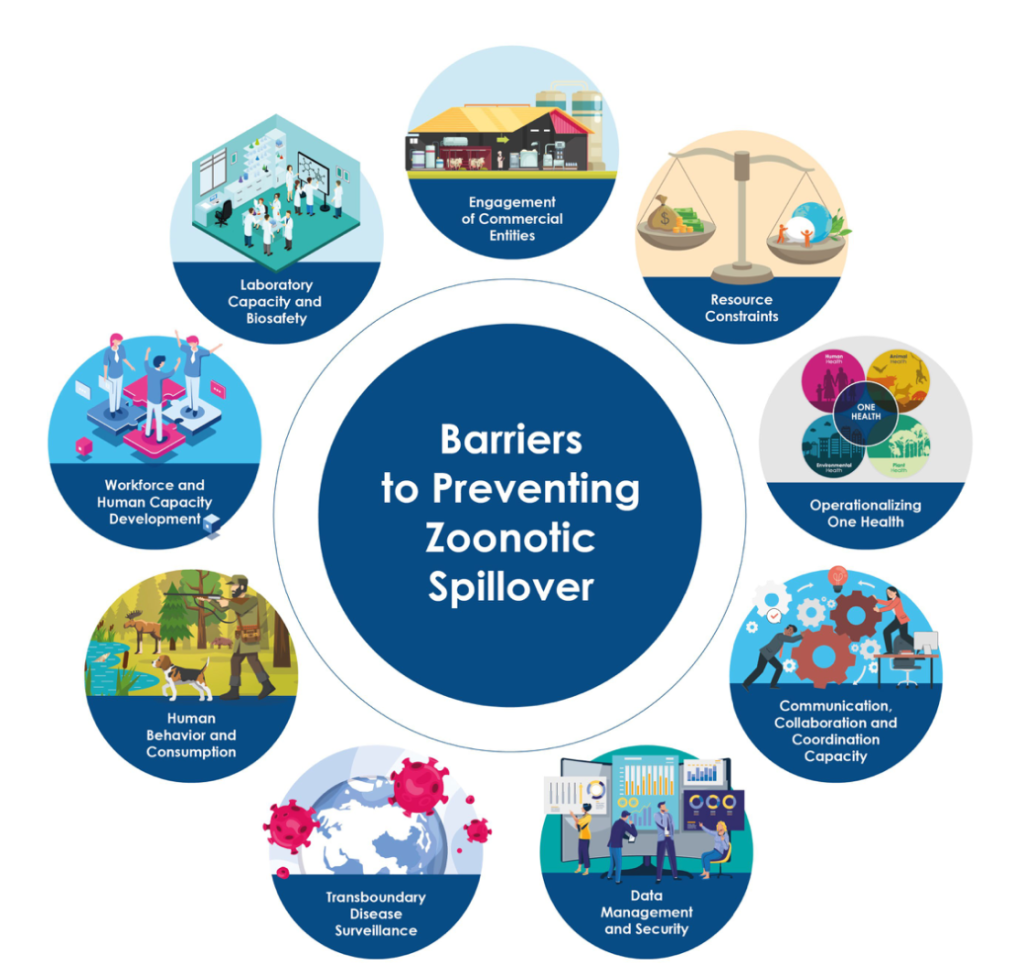

Conclusions
- Harmonizing activities across diverse sectors and agencies responsible for human health, domestic and wild animal health, and environmental health can lead to coordinated action and improved outcomes.
- Efficient resource allocation is essential to overcome inadequacies and variation, such as weak and varied surveillance systems, services, research, conducting transboundary, cross-country comparisons, as well as substantial underreporting of diseases.
- Expertise pooling can be accomplished by sustaining a reservoir of skilled professionals adept at addressing the interface of human, animal, and environmental health in the region.
How to Enhance Zoonotic Disease Management by Addressing Knowledge Gaps and Implementation Barriers
Module 7 discusses the practical actions to address technical, coordinative, collaborative, and institutional challenges that hinder the effective implementation of integrative public health strategies. It features several case studies from Southeast Asia and other regions to illustrate how individuals and organizations overcame barriers to enhance outcomes. The focus spans local, national, and regional supply chain interactions, emphasizing an integrated approach to One Health implementation for preventing and mitigating zoonotic spillover. This module is structured around nine key barriers and actionable plans addressing these challenges within the summarized framework for enhancing resilience against zoonotic disease threats in Southeast Asia.
Contents
- Resource constraints
- Operationalizing One Health
- Communication, collaboration, and coordination
- Data management, sharing, and security
- Transboundary disease surveillance
- Human behavior and consumption
- Workforce and human capacity development
- Laboratory capacity and biosafety
- Engagement of commercial entities

Project Management
The project, Countering Zoonotic Spillover of High Consequence Pathogens (HCP), is conducted in collaboration with the US National Academies of Sciences, Engineering, and Medicine (NASEM).
The project is locally managed by Project Officer, Hazel Yean Ru Ann, who is co-located with the INGSA-Asia office at Sunway University, Malaysia.
If you or your organisation are involved with the live animal supply chain in Asia, or have expertise in zoonosis, we encourage you to get in touch with the Project Officer and help us to operationalise and disseminate best practice in the field.

